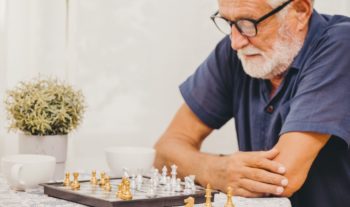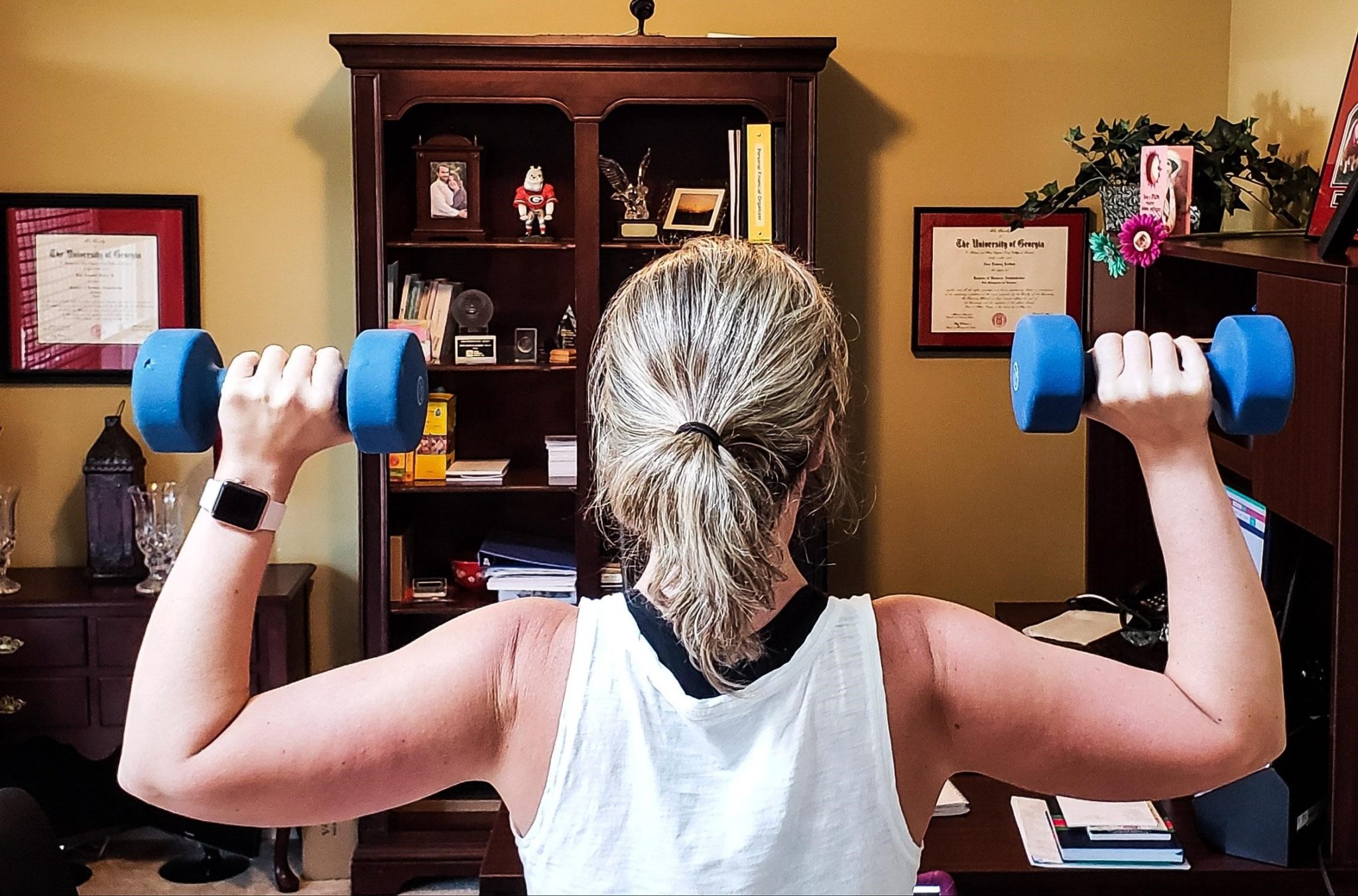It shouldn’t be surprising to learn that doctors and healthcare providers are often frustrated when patients with eating and weight concerns don’t follow their advice. They caution and cajole, nudge, and lecture these patients about the importance of weight loss often to no avail. An unspoken question comes to mind, “Why do these people continue to sabotage themselves?”
Here are five possible reasons why patients ignore their doctors’ advice on weight loss and fitness.
1. Fear of failure and hopelessness
Most patients with eating and weight concerns are not new to the concept of diets and exercise. In fact, providers may not know that their patients have gained and lost 50, 75, or more than 100 pounds several times in their lives.1 These patients have been there and done that, and it hasn’t turned out as well as everyone had hoped.
For most of them, the deprivation they felt while dieting was stupefying, and the restraint they had to muster daily was insufferable until they finally ran out of self-control and self-discipline and gave into eating normal portions, sweets and treats, and foods that they enjoyed.2,3 While providers are trying to psych them on starting a new health regimen, they’re recalling the last time they let their gym membership lapse and the closet full of smaller-sized clothes they fear they’ll never squeeze into again.
2. Depression
Many patients with eating and weight concerns have neurotransmitter imbalances causing depression and anxiety.4 Maybe they started out with the happy genes, but more likely not. Even if they did, the weight stigma and fat prejudice that runs rampant in society, not only through the media but from surgeons to secretaries in medical offices, would have demoralized them and shattered their self-esteem.
Patients who misuse food when they have the blues or the blahs may not even know that they’re depressed. Those who have social anxiety may not realize that eating is their way of coping when out to dinner with friends or attending a work party. They don’t want to hurt their bodies. They only want to feel the way that others appear to feel—relaxed and normal—when they’re around people.
Related content: How to Help Your Partner Make Healthy Lifestyle Changes
3. Lack of life skills to attain and maintain health goals
Most of us weren’t raised with a full complement of the life skills needed to maintain a healthy lifestyle. For example:
-
-
-
- effective self-care,
- healthy relationships,
- work and play balance,
- emotional management,
- goal achievement,
- problem-solving, and
- self-regulation.
-
-
Moreover, we don’t all start out on an equal playing field. Sadly, dysfunctional families too often produce children who are lacking in life skills and end up with a diminished quality of life in adulthood.
Expecting these patients to make healthy choices when they’ve never been taught how to delay gratification or tolerate frustration is a waste of time.
Hoping that they’ll call a friend when they’re upset rather than down a pint of Häagen-Dazs is misplaced optimism if they were raised in an insular family that mistrusted outsiders. Encouraging them to take a walk to unwind is wishful thinking if they feel they must be productive 24/7. We need effective life skills if we’re going to effectively take care of mind and body.
4. Mixed feelings about the weight loss advice
It may seem like a no-brainer to medical professionals that everyone would want to lose weight and be attractive. This is not always the case. Sexual abuse survivors often feel less vulnerable and safer with more meat on their bones. People who are more sexually active when they’re thinner sometimes fear that weight loss will compromise their marital fidelity.
Patients who’ve suffered emotional and physical abuse may insist that they want to date. However, they are afraid of relationships because of what has happened when they’ve let their guard down in the past. In other cases, holding onto excess weight may be a badge of suffering, a way to signify that life hasn’t been good to them. These are serious psychological dilemmas that won’t go away without clinical attention.
5. Rebellion – but not just against weight loss advice
One of the most common reasons for not following medical advice is unconscious rebellion. This is a characteristic of people who are confused about care versus control.5 If they had parents who were domineering, critical, and demanding (and parental dependence was encouraged), they, while wanting to follow providers’ advice, would resent being told what to do. They dislike being pressured, even to do what’s good for them. Further, they will avoid doing it out of misplaced spite.
Rebellion is a complex dynamic which most patients and providers are unaware of. Even though professionals try to care for them, these patients only feel and fear that they’re being controlled. No wonder what doctors say seems to go in one ear and out the other. It’s easy to see why this dynamic may seem like self-sabotage, but it’s much more unconscious and complicated.
The bottom line on why patients ignore doctors’ weight loss advice
Doctors and healthcare providers need not feel that without a graduate degree in psychology they can’t possibly do right by their patients who have eating and weight concerns. They do need to recognize that patients are not intentionally trying to remain unhealthy and hurt their bodies. And they must offer empathy and compassion for their minimal and inconsistent efforts.
If doctors are able to do these things, they will find themselves on the right track. In addition, providers would also benefit from encouraging patients to get support from eating disorders therapists so that no one has to wrestle with eating and weight concerns by themselves.
References:
-
Eric Stice, Kyle Burger, and Sonja Yokum, “Caloric Deprivation Increases Responsivity of Attention and Reward Brain Regions to Intake, Anticipated Intake, and Images of Palatable Foods,” abstract. NeuroImage (February 2013): vol. 67, 15: 322–330. https://doi.org/10.1016/j.neuroimage.2012.11.028. Accessed 12/20/20
-
Paul S. Maclean, Audrey Bergouignan, Marc-Andre Cornier, Matthew R. Jackman, “Biology’s Response to Dieting: The Impetus for Weight Regain,” American Journal of Physiology: Regulatory, Integrative and Comparative Physiology (September 1, 2011): vol. 301, no. 3, R581-R600 DOI: 10.1152/ajpregu.00755.2010. Accessed 12/20/20. https://www.ncbi.nlm.nih.gov/pmc/articles/PMC3174765/
-
A. G. Dulloo and J..P Montani, “Pathways from Dieting To Weight Regain, To Obesity and To the Metabolic Syndrome: An Overview,” abstract. Obesity Reviews (2015), 16: 1–6. doi: 10.1111/obr.12250, https://www.ncbi.nlm.nih.gov/pubmed/25614198. Accessed 12/20/20
-
Karen R. Koenig and Paige O’Mahoney, Helping Patients Outsmart Overeating: Psychological Strategies for Doctors and Health Care Providers. (New York: Rowman & Littlefield, 2017), 36-7.
-
Chelsea Fielder-Jenks, “Binge Eating Disorder and Anxiety,” Eating Disorder Hope, https://www.eatingdisorderhope.com/information/binge-eating-disorder/binge-eating-disorder-and-anxiety. Accessed 12/22/20.
First published 5/12/17. Updated and republished 12/25/20
Karen R. Koenig, M.Ed., LCSW and Paige O'Mahoney, M.D., CHWC
Website:
https://www.karenrkoenig.com/
Karen R. Koenig, M.Ed., LCSW (L), is a psychotherapist, blogger, educator, and expert on the psychology of eating, the why and how, not the what, of it. She has 30 years of experience teaching chronic dieters and overeaters how to become “normal” eaters. And, how to develop a positive relationship with food and their bodies.
Her education includes training at Boston University, Simmons College School of Social Work, and Adelphi University.
She is the author of seven books on eating and weight. Koenig teams up with Paige O’Mahoney to provide a cutting edge way for doctors and health care providers to treat high weight patients in a new book, “Helping Patients Outsmart Overeating: Psychological Strategies for Doctors and Health Care Providers” (January 12, 2017).
Paige O’Mahoney, M.D., CHWC (R), is the co-author, with eating disorders therapist Karen R. Koenig, M.Ed., LCSW, of Helping Patients Outsmart Overeating: Psychological Strategies for Doctors and Health Care Providers.
A health and wellness coach, certified Intuitive Eating counselor, retired pediatrician, author, and foodie, she helps men and women overcome overeating and create purposeful, satisfying lives.
Information about her coaching practice, workshops, training for health professionals, meal planning tips, and recipes may be found on Facebook
Comments:
Leave a Reply
Comment will held for moderation












I made people to lose weight with success all my doctor life as a consultant. I started as a young resident because my boss was losing his calm, the patients had serious conditions to lose weight. 1/I have always a friendly approach to let them understand why I was here to make them to lose weight. 2/ I was giving food information and in Houston Texas, I was giving cooking classes and recipes to cook healthy 3/ then I was attracting their attention with the equation intake energy and consumption. My easiest work was when I was preparing people to lose weight to be prepared for cardiac surgery, maybe the secret was because I was taking care of them for any internal disease and I was adding “BTW, it would be good to lose weight and starting the why and how”.
These things can apply to almost all lifestyle advice our docs give us. Taking a pill is so easy, but changing habits is hard! Every primary care doctor should have a lifestyle coach or counselor in their practice to help patients change. If only we in the US could get our insurance companies to pay for it! They would, in the long run, pay out much less to doctors and hospitals if we had the opportunity to learn to be healthy.